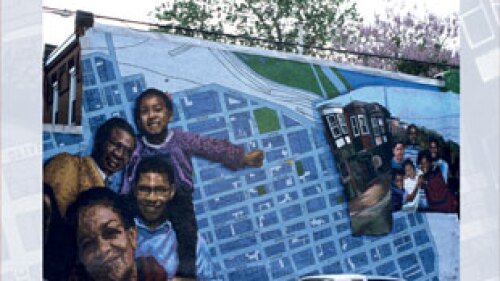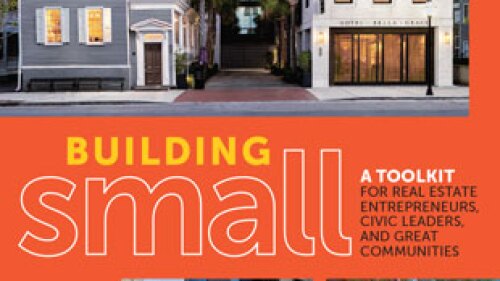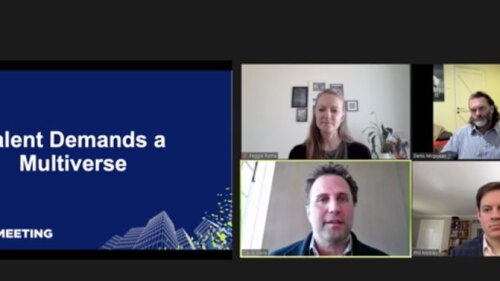Real Estate Trends
A new report by ULI and Heitman, a global real estate investment management firm, indicates that environmental change is prompting the migration of people and businesses, movements that may trigger significant shifts in demand for real estate. Just as investors are being forced to recognize and price the physical risks associated with climate change—wildfires, hurricanes, excessive heat—they need to integrate climate migration risk into their underwriting models.
Former ULI Global Chairman Owen Thomas, CEO of Boston Properties, joined Matt Slepin, founder and managing partner of Terra Search and a ULI Foundation Governor, for a recent episode of Leading Voices in Real Estate. Thomas discussed his commitment to the industry in key leadership positions, including serving as the immediate past Global Chair of the Urban Land Institute and his significant contribution to ULI’s Net Zero Imperative Initiative working to reduce our industry’s carbon footprint.
Despite a forecast for higher inflation and rising interest rates, experts continue to have a favorable view on returns and performance for commercial real estate. However, the high tide of the improving economy is not raising all boats to the same level. There remains a clear bifurcation across and within property sectors.
Khoo Teng Chye, the new chair of ULI Asia Pacific, began his three-year term in July, succeeding Nicholas Brooke, chairman of Professional Property Services in Hong Kong. An urban planner based in Singapore, Khoo teaches at the Faculty of Engineering and the School of Design and Environment at the National University of Singapore. Previously, he was executive director of Singapore’s Centre for Liveable Cities and chief executive officer of PUB, Singapore’s National Water Agency.
Renters are now the majority in more than 100 U.S. suburbs that were previously homeowner territory 10 years ago, according to an analysis of U.S. Census Bureau data by Yardi’s RentCafé. Another 57 suburbs are expected to follow suit in the next five years, with many of these suburbs belonging to the Miami, Washington, D.C., and Los Angeles metro areas.
In Furthering Fair Housing: Prospects for Racial Justice in America’s Neighborhoods(2021, Temple University Press), influential housing thought leaders delve into the history of the fair housing and community development movements that have worked to improve housing opportunity for nonwhite households and provide perspectives on potential pathways forward.
The Dodge Momentum Index fell to 155.8 in July, a 6 percent decline from the revised June reading of 164.9. The index, issued by Dodge Data and Analytics, is a monthly measure of the initial report for nonresidential building projects in planning, which has been shown to lead construction spending for nonresidential buildings by a full year. The two components of the index fell in July—commercial planning by 3 percent and institutional planning by 9 percent.
Adapting to and mitigating the impacts of climate change have remained top priorities in Southeast Florida, even as the COVID-19 pandemic has tested other aspects of community resilience, said public-sector leaders participating in a recent ULI webinar hosted by ULI Southeast Florida/Caribbean.
ULI MEMBER–ONLY CONTENT: An excerpt from Building Small: A Toolkit for Real Estate Entrepreneurs, Civic Leaders, and Great Communities.
The COVID-19 pandemic has challenged us all to rethink everything we thought we knew about productivity and the workplace. As we have learned, the answers are far from straightforward, but they are nevertheless emerging. During a 2021 ULI Virtual Spring Meeting session, real estate experts explored how employees’ preferences and performance are leading to a suite of workplaces—a “multiverse of work” in which homes, corporate offices, and various other locations will combine to enable a high-performing workforce.






